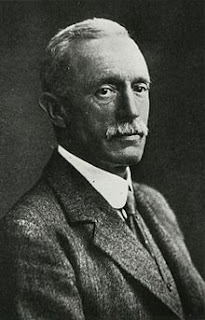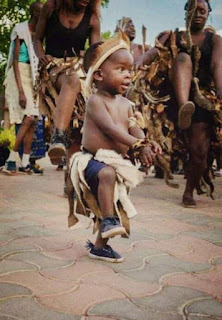"One of the very first Europeans to meet and systematically understand the Northern Nguni States of Zambia and Malawi was Sir Alfred Sharpe. Any student concerned with the Nguni History of Malawi and Zambia must therefore make it one the priorities to follow the journey of this man in Africa". GJK
Early Life of Alfred Sharpe
Sir Alfred Sharpe was born on 19 May 1853 at Lancaster, Lancashire, in England. As he was growing up, his family moved from Lancaster, first to Wales and then to Switzerland and France. His father was a railway engineer, involved in railway construction in those countries hence the movements herein.
He was educated at Haileybury and Imperial Service College, near Hertford and trained with a private firm of solicitors, qualifying as a solicitor at age twenty-three. In 1883, he travelled with a cousin to Viti Levu, the largest island of Fiji, to start a sugar plantation. Their plantation venture failed within a year, as the cousins had no experience in tropical agriculture and because sugar prices were low. Sharpe started his administrative career in Fiji with a brief period as an acting stipendiary magistrate there in 1885–1886. He was offered the position of a district officer in Fiji, but he refused and then left for Central Africa.
Sir Alfred Sharpe in later years of his life. He won several agreements with on behalf for the British with the local traditional leaders in Central Africa. Upon arriving in Central Africa, Sharpe initially went to the Shire Highlands, south of Lake Nyasa, in 1887 to hunt elephants and trade in ivory. However, almost immediately, he became involved in the war between the African Lakes Company and Arab slave traders, mostly fought around Karonga at the north end of Lake Nyasa.
Henry Hamilton Johnston was appointed as British consul to Mozambique and the Interior in early 1889, and was instructed to report on the extent of Portuguese rule in the Zambezi and Shire River valleys, and to prevent local rulers beyond the existing Portuguese jurisdiction from accepting Portuguese protection.
Both Johnston and his vice-consul, John Buchanan, exceeded their instructions and declared British protectorates, firstly over the Shire Highlands and then over the area west of Lake Nyasa, both in 1889. The British Central Africa protectorate came into existence in 1891 when Johnston's actions were endorsed by the British government. A year before the establishment of this institution, Sharpe had been employed jointly by imperialist Cecil Rhodes and the British Consul in Nyasaland, making his meeting with the Northern Nguni Kings inevitable as they set to have them on their side.
Sharpe among the Maseko Ngonis
was proclaimed, this Nguni state had raided widely in the Shire Highlands. After 1893, relations between the Gomani, the new young Ngoni leader, and the protectorate administration worsened.
In fact in, 1895, Gomani ordered his people not to pay the Hut tax, which Johnston had imposed. In Johnston's absence, Sharpe as Acting Commissioner ordered troops to attack the Ngoni in October 1896. After a brief skirmish, the Ngoni fighters were dispersed and Gomani was captured and shot. A heavy punitive fine in cattle was imposed, which impoverished the Ngoni and forced many of their young men to become migrant workers. Gomani had attempted to prevent his people taking up work with settlers in the Shire Highlands, but his defeat laid them open to labour recruiters.
Sharpe among Mzimba Ngonis
One of Sharpe's most notable administrative achievements was bringing the Northern Ngoni under governmental control without resorting to excessive force.As late as 1902, Sharpe was prepared to use coercion rather than persuasion when he sent troops to Chintheche when local people protested against the introduction of the six shilling rate of Hut tax, and forced a number of the protesters to undertake unpaid work for the government as a punishment.
The Ngoni had settled in northern Nyasaland in the 1850s and brought the local peoples under their control. From the late 1870s, the Ngoni there had contact with Free Church of Scotland missionaries. Robert Laws first met the Ngoni Chief Mbelwa (referred to as Mombera in early writings) in 1879, and in 1881 he established Livingstonia Mission at Bandawe in the northwestern of Lake Nyasa. Over a period of years, Laws persuaded the Ngoni leader to cease raiding and the missionaries established themselves in his kingdom as educators and arbitrators in disputes.
One of the oldest churches in Malawi is situated in Ekwendeni,in the North of the country. This photo was taken in 1895.
In 1885, a mission school was opened at Ekwendeni in the heart of Ngoniland. By 1899, there were favourable signs that the Ngoni were ready to come under the control of the protectorate administration. Dr. Laws advised Sharpe to be cautious and to manage the transfer of power with tact and dignity. Sharpe agreed to leave the timing of imposition of administrative control to Laws: in 1904, after a severe famine in 1903, the time seemed right.
At a ceremony at Ekwendeni in October 1904, the Ngoni leaders agreed to submit themselves to British rule, to accept a resident administrator and to pay taxes from 1906. However, Sharpe allowed the Ngoni a measure of self-government under a paramount chief, and this continued for several years after his departure. Sharpe's agreement with Kikng M'mbelwa in 1904 showed that he now accepted that the consent of the people governed could not be ignored. Before Sharpe extended the Hut tax to M'mbelwa's kingdom, he noted that almost no Nguni from that area went to the Shire Highlands as seasonal workers, but after many went not only to the Shire Highlands, but also to Rhodesia and even South Africa.
A Map of Ekwendeni, right in the heart of the M'mbelwa Kingdom, Northern Malawi.
Alfred Sharpe's fails to sign a Treaty with King Mphezeni
The colonization of North-Eastern Rhodesia began in 1890 when two British emissaies set out
for the territory in order to secure treaties with African chiefs. These were Joseph Thompson,
dispatched directly by John Cecil Rhodes the founder o the British South Africa Company (B.S.A.Co);
the other was Alfred Sharpe, sent by the Consul for Nyasaland, Harry Johnston.
Alfred Sharpe arrived in Mphezeni's land in 1889. Despite numerous attempts to broker a deal with the aged Nguni King, he failed to do so. Frustrated, he went across the Luangwa River and
took it on himself to declare the whole of the country to the West to be under British protection.
Alfred Sharpe's becomes an in-law of Chief Jumbe of Zambia
Alfred Sharpe had a son Edmund born in Fiji in his early years and moved with him to Nyasaland. Edmund worked in the Colonial Service in North Eastern Rhodesia.
While on tour collecting taxes, Edmund Sharpe witnessed the initiation ceremony for Chief Jumbe's eldest daughter, Veronica Chulu. He asked the chief for permission to marry Veronica. They had five sons named Harrison Philip, Jack, John, Jimmy and Thomas, and a daughter named Jane.
Sir Alfred Sharpe's later life and death.
At the time of Queen Victoria's Diamond Jubilee in 1897, Sharpe was made a Companion of the Order of the Bath (CB) and in 1903 was created a Knight Commander of the Order of St Michael and St George (K.C.M.G). He retired to Britain where he wrote and lectured on Central Africa in his retirement, and also travelled extensively in Africa. He died on 10 December 1935, in London.

_(cropped).jpg)




Comments
Post a Comment